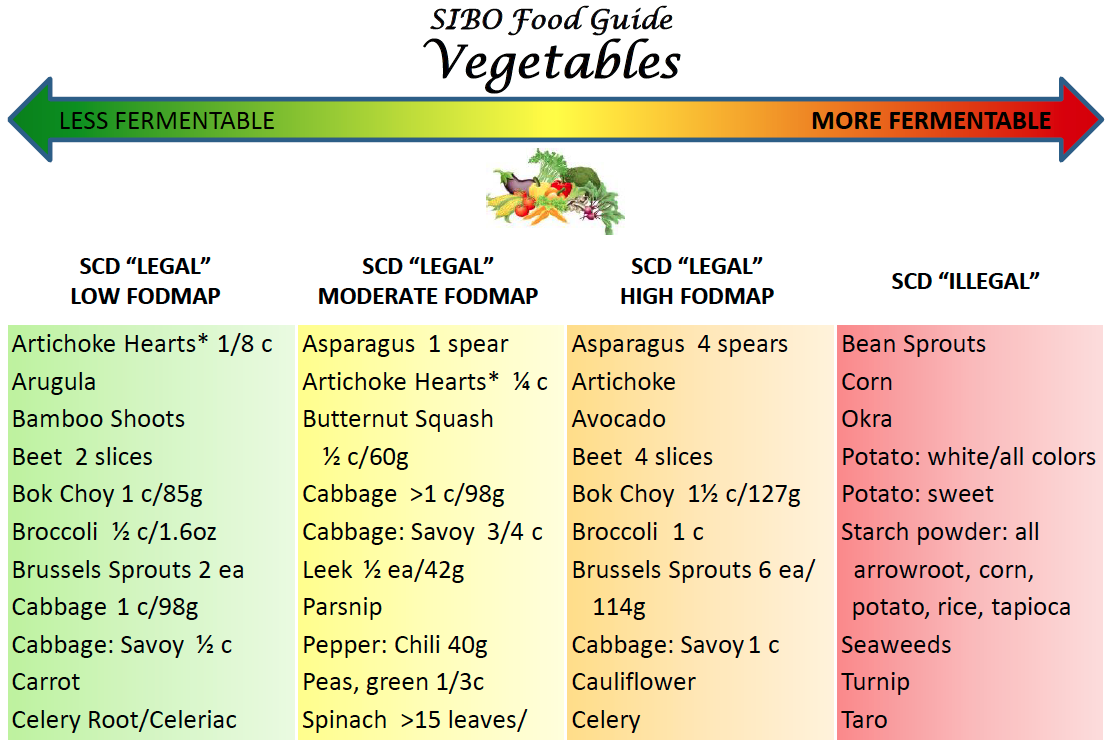
Inability to tolerate high fibre foods including vegetables, broccoli, legumes, lentils, onions, garlic.Bloating (often extreme, especially after meals).Diarrhoea and constipation (the previous diagnosis of IBS-C, IBS-D and IBS-M is common).The main gastrointestinal symptoms include: The symptoms of SIBO are similar to other digestive disorders such as IBS (Irritable Bowel Syndrome), lactose intolerance and fructose malabsorption. Bacteria steal nutrients ( B12, iron, magnesium, calcium) before your body has a chance to use them which can lead to nutritional deficiencies.Ironically vitamins A and D are especially important for gut health. Insufficient bile salts can lead to fat malabsorption and the malabsorption of fat-soluble vitamins (A, D, E, & K).

Bacteria break down bile salts in the intestine which are needed for digestion, especially fat digestion.Bacterial endotoxin-derived gut inflammation impairs gut motility and affects the gut bacteria.A damaged gut lining can lead to increased intestinal permeability, or “leaky gut”, a condition where partially digested food particles and bacterial endotoxins (part of the outer membrane shed by certain bacteria) can escape through gaps in the intestinal wall, cause an immune reaction and trigger systemic inflammation.Bacterial fermentation produces methane, hydrogen, and hydrogen sulphide gas which is uncomfortable and causes yet more damage. When the microvilli are damaged, and not able to digest small starch molecules, the bacteria use these for fermentation. Bacteria produce toxic by-products that damage the microvilli, the absorptive surface of the small intestine, reducing enzymes such as lactase and DAO (diamine oxidase), which can lead to the malabsorption of nutrients, nutrient deficiencies, histamine, and lactose intolerance.Hypothyroidism, autoimmune disease, TBI (Traumatic Brain Injury), Lyme Disease, Diabetes, Ehlers’s Danlos Syndrome, Parkinson’s Disease, and scleroderma may also result in poor motility. Undigested food is fermented by bacteria in the small intestine, causing unpleasant symptoms such as bloating. coli, campylobacter jejuni, salmonella) the MMC does not work properly. When we constantly snack, or the nerves or the cells in our gut are damaged as a result of an acute bacterial infection (e.g., Shigella, E. The vagus nerve runs from the brain to the gut and stimulates tissues needed for digestion and absorption. It is active in between meals when fasting and at night. MMC, otherwise known as the “housekeeping wave” is responsible for moving food and cellular debris from the stomach and/or small intestine to the large intestine.

Poor gut motilityĭysfunction of one of the three main components of motility, the MMC (Migrating Motor Complex), the vagus nerve, and the ICC (Interstitial cells of Cajal). Some infections such as Helicobacter pylori reduce stomach acid production. Bile, digestive enzymes, and stomach acid facilitate the digestion and absorption of food and, much like detergent, help to prevent bacterial overgrowth. Low production of bile, pancreatic (digestive) enzymes, and hydrochloric (stomach) acid.


 0 kommentar(er)
0 kommentar(er)
